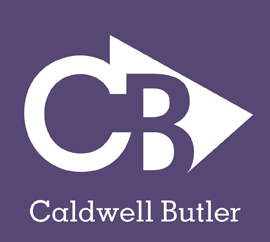

Deaconess Health System struggled with maintaining consistent compliance of 17 CMS core measures. In spite of significant investment in Lean Six-Sigma training and manpower, Deaconess struggled to achieve sustainable improvements in core measures. The Deaconess’ senior leadership realized they were at risk of losing $750K in reimbursements and agreed that a new approach was required. Deaconess had a fully trained performance improvement team. Two years prior to this engagement, they invested significant dollars to have staff members certified in Lean Six-Sigma. This team spent a year focused on various core measures utilizing a traditional approach, applying the DMAIC or Kaizen methods against each measure. In addition, separate teams were created for separate projects. Caldwell Butler analyzed the situation and deployed its expertise in margin improvement via rapid implementation and testing strategies. Utilizing Rapid Cycle testing, CBA guided the Deaconess teams to engage in performance improvement through the lens of quick, consistent gains. Deploying EXCELerator allowed the teams to have a 360-degree view of the entire performance, while introducing 84 healthcare-oriented engineering concepts to hard wire the gains and support sustainable results.
Deaconess’ senior leadership wanted an action-oriented accountability structure geared to sustainable progress and strong implementation. They turned to CBA to create the right goals and team structures while implementing the 100-Day Workout. Deaconess set about its goal of reaching 100% compliance on all 17 CMS measures by chartering each team to close 50% of the gap within the 100 days. The 100-Day Workout structure provided an excellent platform for a hospital-wide initiative that promoted interdepartmental collaboration. It also provided the opportunity to identify the real issues and demonstrate the effectiveness of solutions through extensive rapid cycle testing. This allowed the team to test their ideas in an open environment and share results. With the CBA team’s help, Deaconess affinitized the 17 CMS measures into four groups, developed action targets, and received mentoring in Rapid Cycle Testing to create a culture that values experimentation and increases speed to sustainable results.
Performance Improvement that Works: Strategy Development:With the support of CBA, Deaconess organized four sub-teams assigned to a CMS group that had similar issues. Each team focused on improving their assigned CMS measures utilizing action targets. Action targets required that every person on every team was responsible for testing and implementing two successful changes per month. The teams began assessing, developing, and implementing changes, resulting in aggressive changes to positively generate sustainable compliance goals.
Implementation of Rapid Cycle Testing:Caldwell Butler mentored the Deaconess’ team on Rapid Cycle Testing, transcending their original beliefs that created solutions based on false assessment of the root cause. The end result was identification of true solutions that improved the CMS measures. CBA also lead the teams through exercises to hardwire the gains.
Measurable Benefits:
Intangible Benefits: